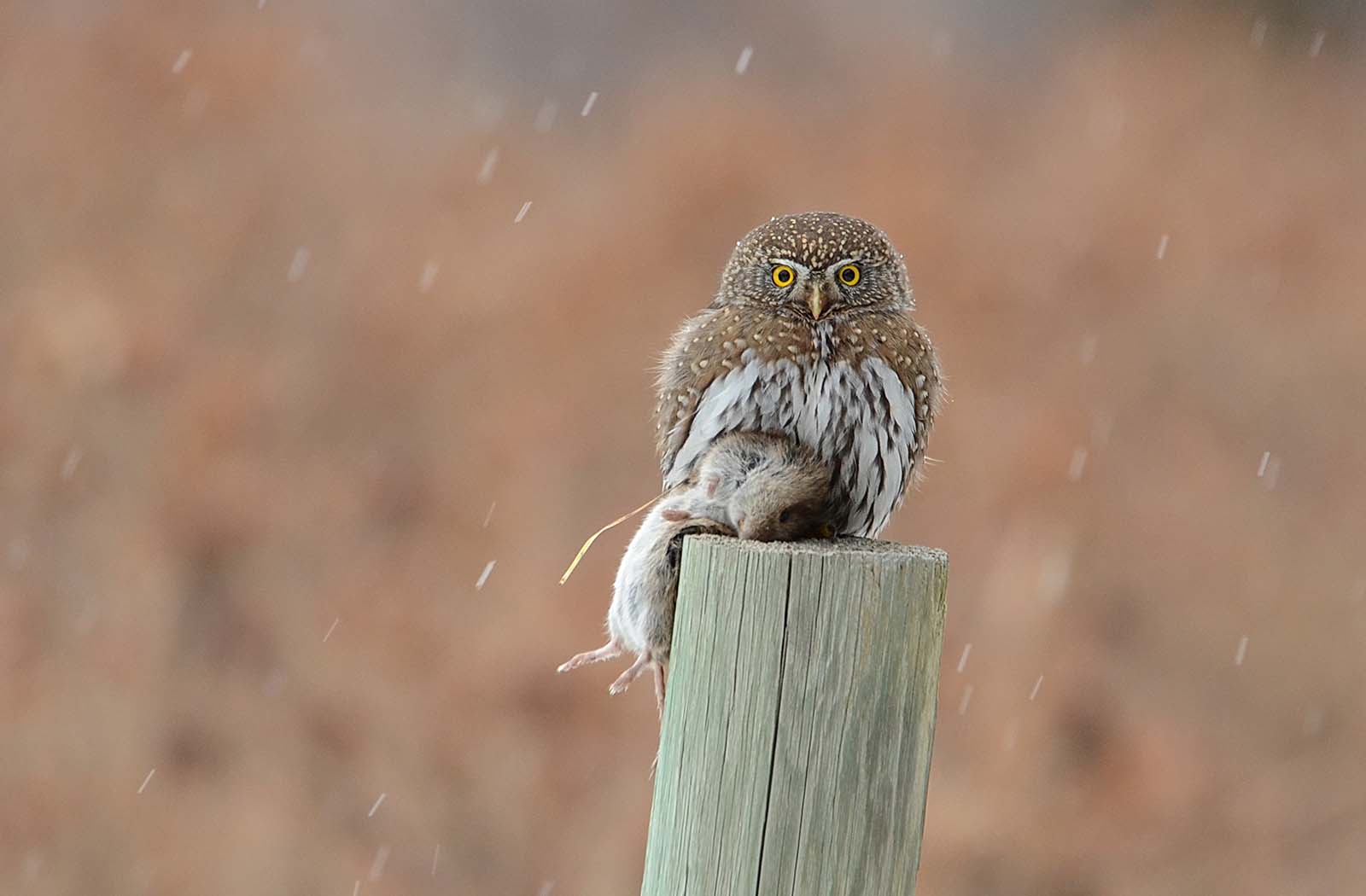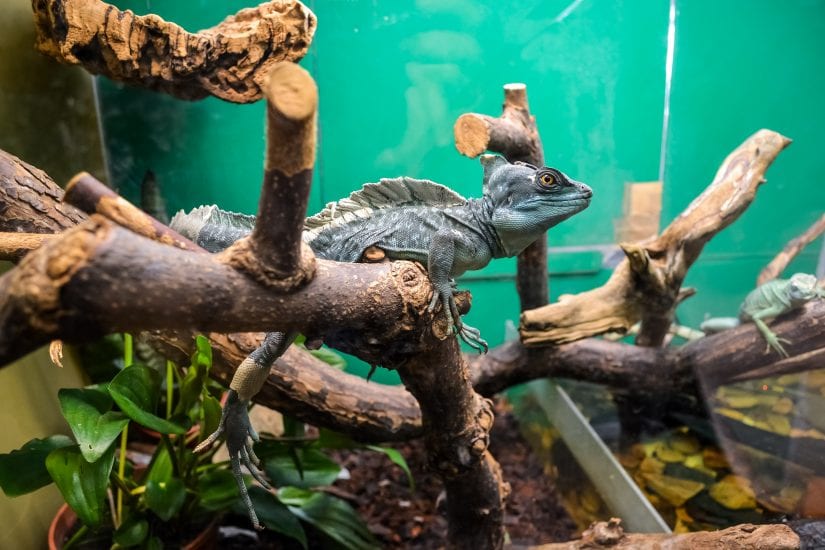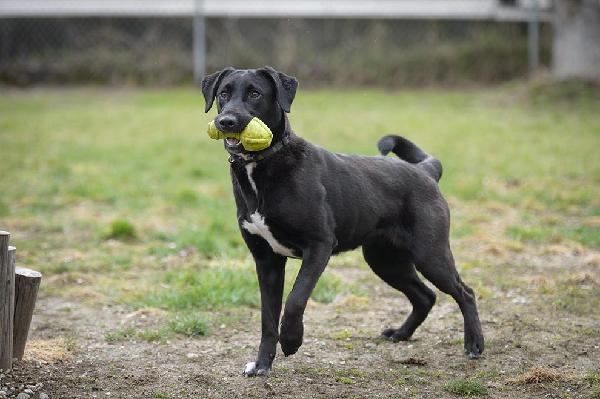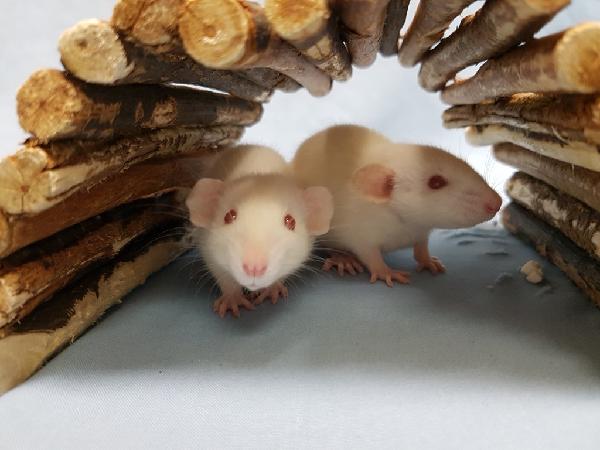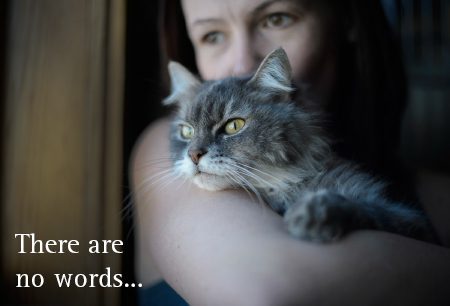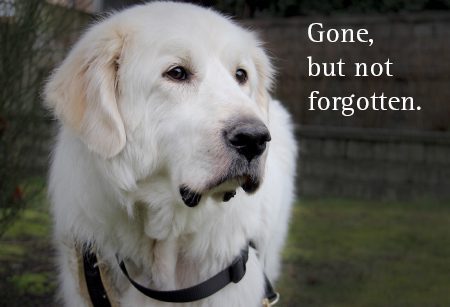Exotic animals
Although serval cats are not included in the provincial Controlled Alien Species legislation, that doesn’t mean they should be kept as pets. Serval cats are wild animals. Native to many parts of Africa, serval cats roam savannahs and wetlands hunting for prey. They have a poor quality of life when kept as pets.
These wild cats are not much bigger than a medium-size dog, but they still retain their wild instincts and are cunning escape artists. They are difficult to contain in a home or enclosure setting, and pose a risk to their keepers and the public, and even native wildlife if they escape. Their own safety is also in jeopardy in captivity. Escaped servals have died by being hit by cars or of starvation, since they never had the opportunity to learn how to hunt.
In 2019, the BC SPCA seized 13 serval cats near Kamloops living in horrific conditions. Following months of specialized care, the BC SPCA received federal permits to send the servals to accredited sanctuaries in the U.S. The BC SPCA and over 6,600 supporters then campaigned the provincial Director, Fish & Wildlife to prohibit private serval ownership, breeding, display and importation through existing exotic animal regulations. However, no government action has been taken to date.
Serval cats are strong, fast and have an incredible capacity for jumping. In the wild, servals will leap high into the air to catch flying birds, and can slap fish hard enough to stun them. They are not easily house-trained, and will frequently mark their territory with urine. It is extremely challenging to provide for the nutritional and veterinary needs of a wild cat like a serval in captivity. Without their needs met, they experience poor welfare. There are no accredited sanctuaries in Canada for servals. Their breeding is unregulated and animal welfare organizations are not equipped to house these wild cats.
The BC SPCA has always opposed the declawing of cats. Declawing painfully removes the nails and bones of the toes – comparable to amputating human’s fingers at the last knuckle. In the past, serval cats were declawed when kept as pets, but declawing has since been banned by the College of Veterinarians of British Columbia (CVBC). This means serval cats pose an even greater risk to people and pets in the home. They may scratch while attempting to play, or out of frustration because their wild needs aren’t met.
The B.C. Government has the authority to designate certain animals as Controlled Alien Species to prohibit their breeding, sales and possession. Other dangerous cats such as tigers, lions, leopards, lynx, and bobcats cannot be kept as pets in B.C. Right now, serval cats are not on the Controlled Alien Species list, leading to their exploitation, suffering and unregulated breeding. Ask the Ministry to add serval cats to the Controlled Alien Species legislation – email the Director, Wildlife and Habitat.
The BC SPCA encourages all municipalities and governments to adopt exotic pet laws that prohibit the keeping of serval cats and other exotic animals.
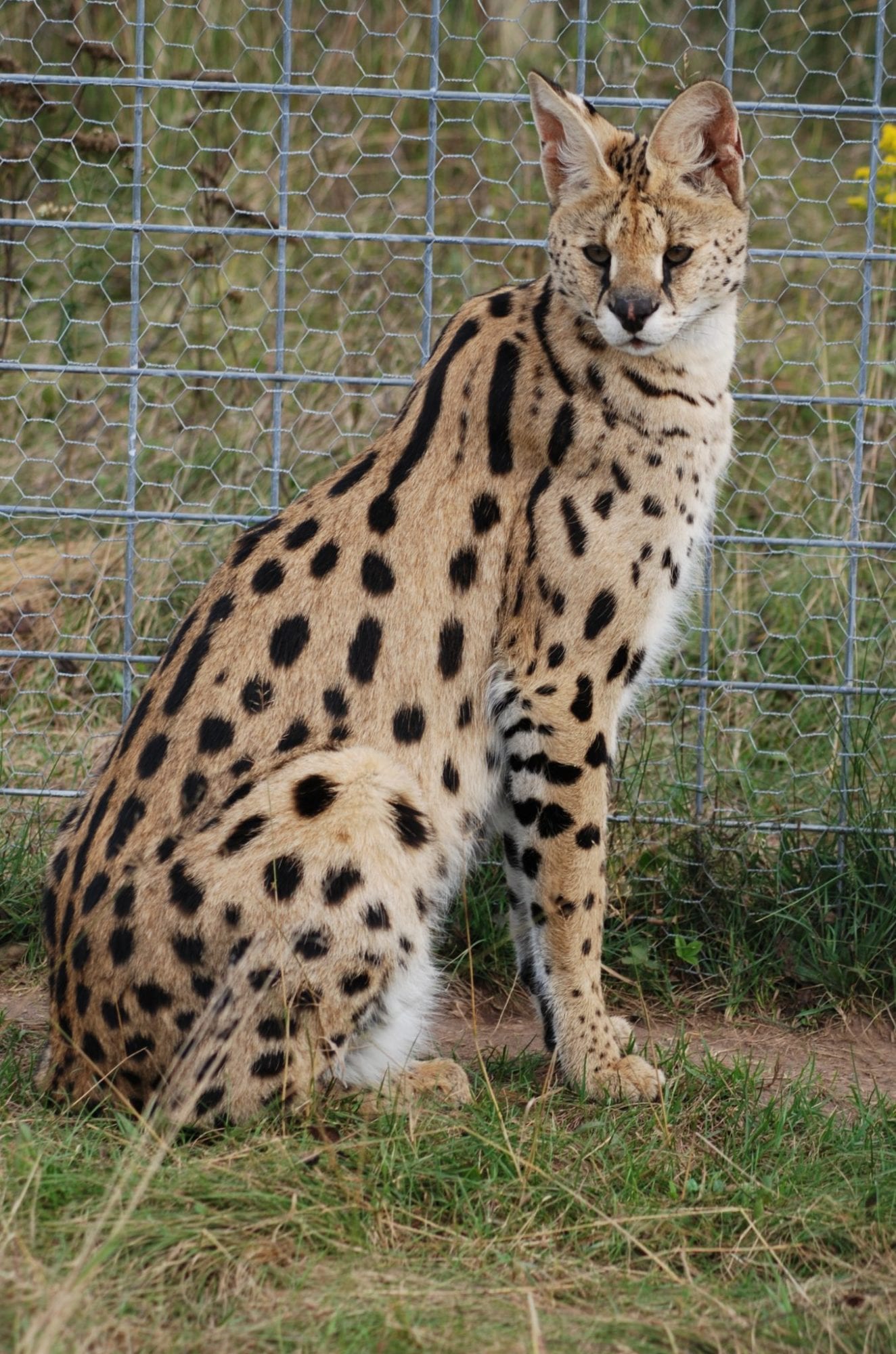
Subscribe to the BC SPCA’s WildSense e-newsletter for more information:
Classrooms are an unnatural and stressful setting for wild or exotic animals. Seeing these animals outside of their natural wild habitat does not provide educational benefits and will likely lead to their early death.
Also, wild and exotic animals can carry diseases that may be passed onto children, who are still developing their immune systems.
There are many ways to experience and appreciate wild and exotic animals in nature, online or through documentaries. Compassion starts young, so let’s keep animals in nature.
Read our positions on animals in schools, educational visits using animals, exotic pets and wildlife welfare.
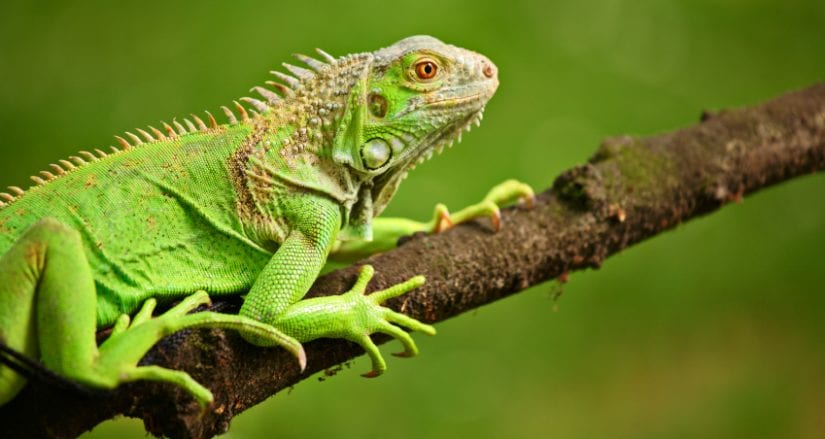
Wild animals are indigenous to Canada, but exotic animals are wild animals from other countries. These animals can be captured from the wild or bred in captivity. Exotic animals are often sold in the international pet trade.
The BC SPCA does not support keeping wild or exotic animals as pets, due to their unique physical and emotional needs. These animals often suffer in care because of their specialized needs.
Under provincial law, it is illegal to keep certain wildlife and certain dangerous exotic animals like tigers, primates or crocodiles, as they are designated as Controlled Alien Species.
Many cities also have exotic animal bylaws that make it illegal to keep some or all exotic pets. Check with your local municipality for a list of banned exotic animals.
Read more about exotic pets.
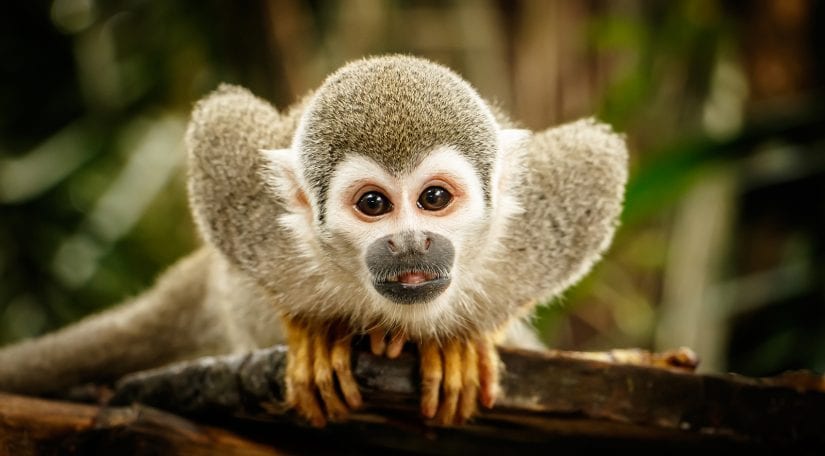
It is illegal to keep monkeys and other primates as pets in B.C. They are listed as Controlled Alien Species under provincial legislation.
Monkeys are social and live in groups with their families. Removing babies or adults from this group is distressing for all individuals. When choosing a pet, people often don’t think about how big the animals will get and how long they will live. When the care responsibilities become unmanageable, the animals are often surrendered to an animal rescue organization or refuge – if these locations are not already full.
The BC SPCA does not support keeping or breeding exotic animals as pets due to their unique physical and emotional needs. These animals often suffer in care because of their specialized needs. Exotic pets are often taken from the wild and may suffer or die during capture or transport. When people capture animals from the wild, they also disturb fragile ecosystems and threaten species’ survival.
Read our position on wild and exotic animals kept as pets.
Read more about the BC Government’s Controlled Alien Species Regulations.
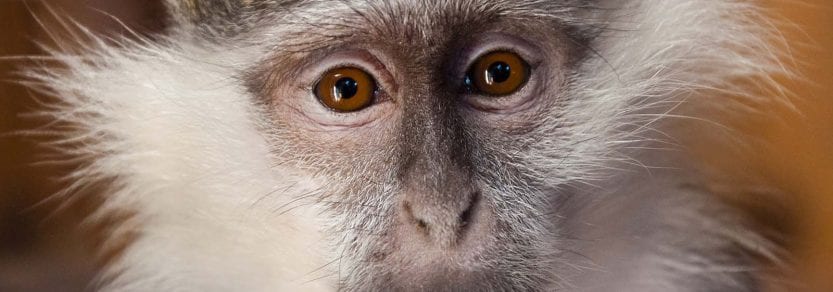
It is illegal to keep any primate, including pygmy marmosets or bushbabies, as pets in B.C. They are listed as a Controlled Alien Species under provincial legislation.
Primates are very social and live in groups with their families. Removing babies or adults from this group is distressing for all the individuals.
The BC SPCA does not support keeping or breeding exotic animals as pets due to their unique physical and emotional needs. These animals often suffer in care because of their specialized needs. Exotic pets are often taken from the wild, and may suffer or die during capture or transport. When people capture animals from the wild, they also disturb fragile ecosystems and threaten species’ survival.
Read our position on wild and exotic animals kept as pets.
Read more about the BC Government’s Controlled Alien Species Regulations.
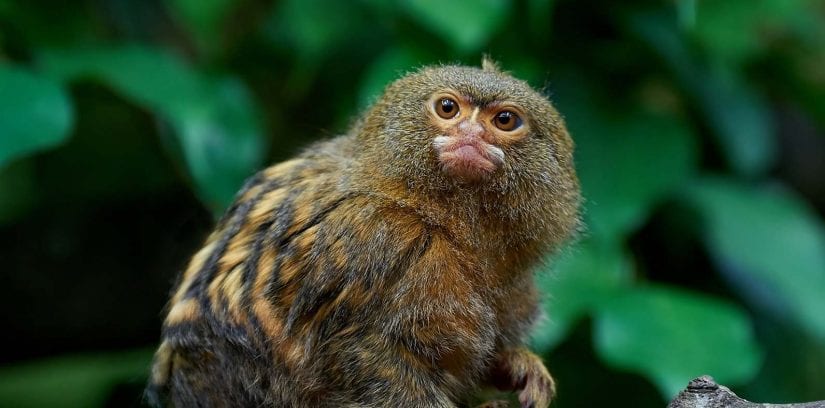
It is illegal to keep or sell a wolf as a pet in B.C. Some dogs are sold as “wolf-dog hybrids” for thousands of dollars, but they are really just dogs and have little to no wild wolf in them. Genetic testing is available to confirm hybrid status, however the animals’ behaviour is often used to assess their “wildness.”
The BC SPCA is opposed to keeping, breeding and importing wolf-dog hybrids as pets. Cross-breeding a wolf and dog counteracts 12,000 years of domestication. These animals are difficult to train and contain, develop stereotypies in captivity, and often show aggression toward other animals and humans. They need a high level of care that is difficult to achieve and do not make good pets.
Wolf-dogs already in captivity should be sent to accredited sanctuaries and never used for public attractions as roadside zoos or “walks with wolves”.
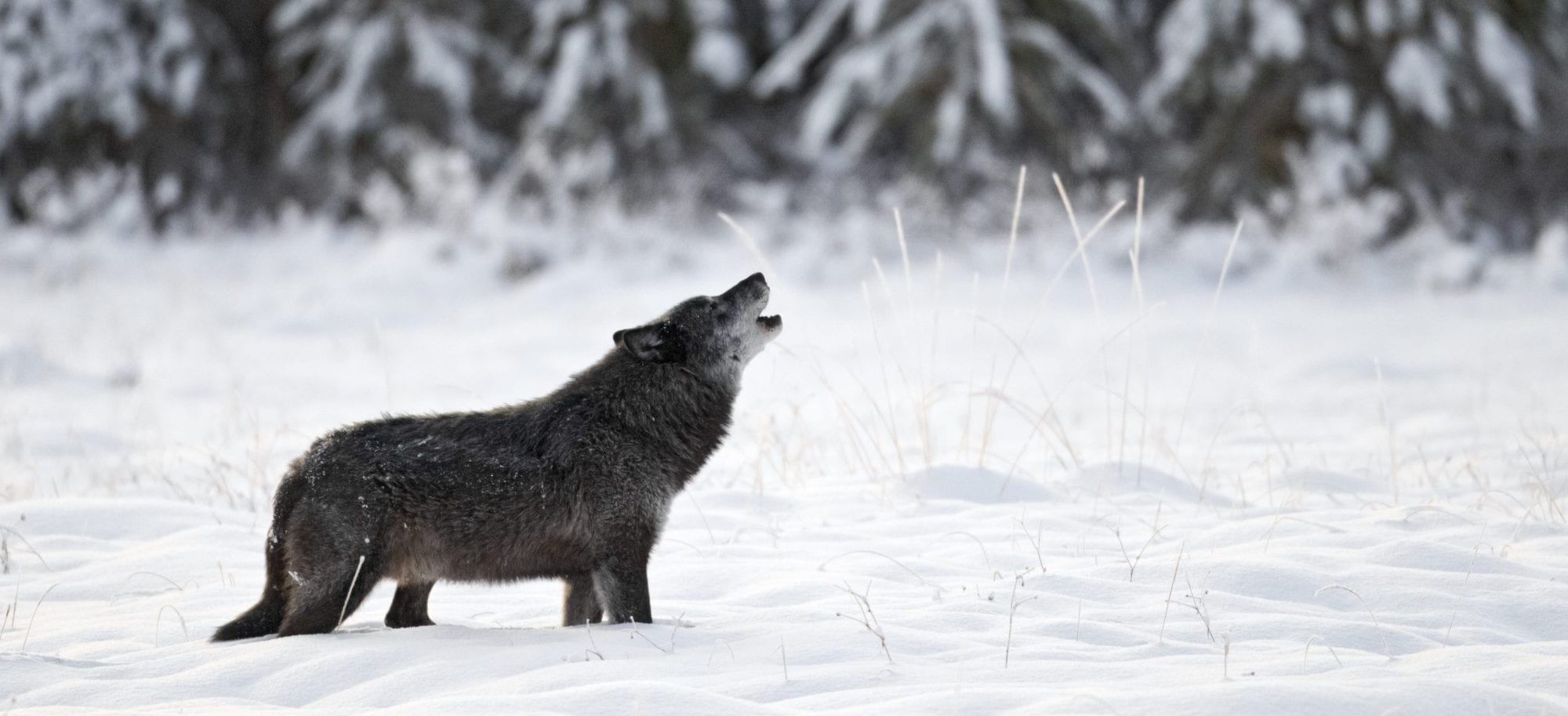
Photo by John E. Marriott
It is illegal to keep wild foxes as pets in B.C. under the BC Wildlife Act. Exotic foxes like Fennec Foxes are also not allowed as pets under Controlled Alien Species Regulations.
The BC SPCA does not support keeping wild or exotic animals as pets, due to their unique physical and emotional needs. These animals often suffer in care because of their specialized needs.
Read more about the BC Government’s Controlled Alien Species Regulations.
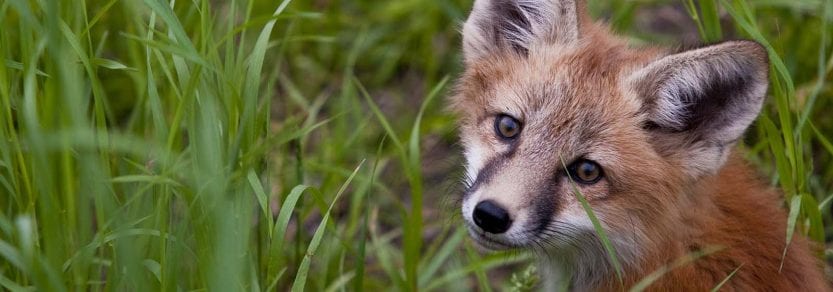
Under provincial and federal law, it is illegal to keep a wild animal, as designated under the BC Wildlife Act, as a pet. Very rarely, the provincial government issues permits for the personal possession of wild animals.
The BC SPCA does not support keeping wild or exotic animals as pets due to their unique physical and emotional needs. Both types of animals – those found wild in Canada and those exotic in Canada but wild to other countries – will suffer in care because of their specialized needs.
Under provincial law, it is illegal to keep certain dangerous exotic animals like tigers, primates or crocodiles as pets. Many cities also have exotic animal bylaws that make it illegal to keep some or all exotic pets. Check with your local municipality for a list of banned exotic animals.
Read more about exotic animals and the law.
If you are concerned about someone owning a wild or exotic animal illegally, please contact the Conservation Officer 24-hour RAPP line at 1-877-952-7277.
